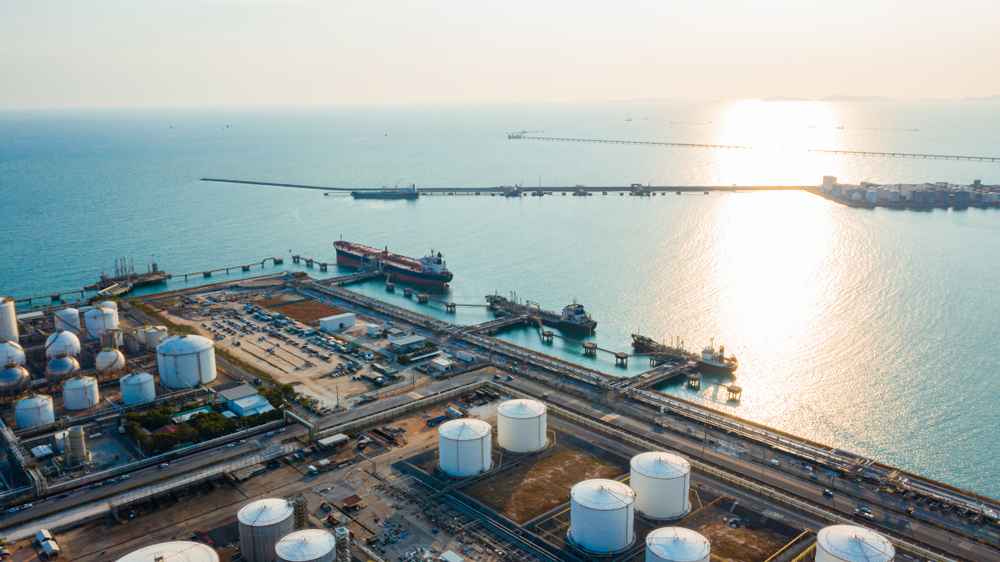The term bunker fuel finds its origin back in times when ships used coal-powered engines, and the coal was stored inside specific areas called coal bunkers. Even though coal-powered engines are a thing of the past, the term bunker is still used to describe the fuel used by heavy sea vessels, such as boats, ships, and yachts.
Categories of Bunker Fuel
Bunker fuel can be categorised into the following:
Residual fuel oils are the remains of a crude oil refining process. They are relatively cheaper than the alternatives and are more viscous as well.
Distilled fuel oils are extracted through the conventional distillation process. These fuel oils offer cleaner burning and can contain up to 7% of FAME biodiesel.
What are the Types of Bunker Fuel?
Bunker fuel oils can be divided into five types, i.e.:
- Marine Gas Oil (MGO)
- Intermediate Fuel Oil (IFO)
- Marine Diesel Oil (MDO)
- Heavy Fuel Oil (HFO)
- Marine Fuel Oil (MFO)

Specifications of Bunker Fuel
Below are some general characteristics of the bunker fuel:
- Less volatile fuel that can be transported over long distances.
- Comes in various shades and colours, ranging from brown to black.
- Emits a specific odour.
- It is categorised into three categories, i.e., A, B, and C, based on viscosity, with the C category being the most viscous fuel.
Different Uses of Bunker Fuel
Different bunker fuels are used by different sea vehicles. The details are as below:
Ocean Going Vessels
Large sea vessels that travel through high seas and oceans have been using heavy fuel oil since the 1960s. The main reason behind this is that HFO is approximately 30% cheaper than any other alternative.
However, due to its high sulphur content, ships are now bound to use marine gas oil (MGO) that has much lower sulphur content. This was made possible through legislation passed in 2020 that allows ships to use marine fuels with a maximum sulphur content of 0.50%.
Nevertheless, some ships have installed specialised scrubbers in the exhaust system that filters out sulphur emissions from the smoke before it is released into the air and is allowed to use heavy fuel oil.
Recreational Vessels
Recreational vessels, such as yachts, impeller engines that are mounted on the rear side of the vessel, are allowed to use white diesel or DERV (diesel engine road vehicle) oil. It is easily found on the fuel pumps.
They are also allowed to use gas oil (red diesel), which is a tax-rebated form of conventional diesel. However, they will have to pay full tax on the gas oil as well, and they have to inform their fuel supplier that they intend to use this fuel for recreational vessels.
Moreover, recreational vessel owners have to declare the percentage of the fuel used to propel their vessel to HMRC as well.

Safety Risks with Bunker Fuel
Long-term exposure to the bunker fuel can pose some significant health risks, including the following:
- It can effectively damage the organs.
- It is also suspected to influence fertility.
- It releases hydrogen sulphides during its prolonged storage, which can be fatally dangerous.
- Its vapours can cause irritation in the eyes, throat, and skin upon exposure.
- It is classified as a dangerous and toxic material for marine life.
Alternatives of Bunker Fuel
With the new age of fuels, some fuels have emerged to be worthy alternatives to the bunker fuel, such as:
Liquefied Natural Gas (LNG)
LNG contains extremely low sulphur content, which is far below the limits put in 2020 legislation, making it a worthy alternative fuel for marine vessels.
However, to use LNG for marine vessels, you have to maintain a temperature of 162 degrees below zero to ensure its practicality, which makes the process extremely challenging. Furthermore, to use LNG as an alternative, you will also have to build compatible engines and fuel systems from scratch, which will take a lot of time and capital.
Biofuels
Biofuels are new-generation fuel oils derived from sustainable organic sources. These fuels are extremely eco-friendly and fall well within the allowed limits of sulphur content. The most commonly used biofuels are:
- FAM biodiesel (fatty acid methyl esters)
- HVO fuel (hydrotreated vegetable oils)
However, it is worth noting that although these fuels are eco-friendlier and more sustainable as compared to conventional fuels, they cost way more than the currently in service marine oils. Right now, these fuels cost 50%-150% more than their conventional alternatives.

Low Sulphur Fuels – New Generation Bunker Fuels
We have discussed that 2020 legislation, also known as IMO 2020, has bound ships and other marine vessels to use low sulphur content fuels. These efforts are made to reduce the emissions of toxic sulphur oxides into the atmosphere. Those efforts have resulted in ultra-low sulphur fuel oils (ULSFO) and very low sulphur fuel oils (VLSFO)
Ultra Low Sulphur Fuel Oil
Ultra-low sulphur fuel oils mostly consist of distillates with a maximum sulphur content of 0.1% (m/m). Residual marine oils can also be de-sulphurised to meet the IMO guidelines, but this process is extremely expensive.
Very Low Sulphur Fuel Oil (VLSFO)
Very low-sulphur fuel oils are generally made of a suitable blend of low-sulphur distillates and residuals. The ratio of the blend can be different depending on the situation and requirements. However, they need to be well under the sulphur limits set by IMO in 2020, i.e., 0.5% (m/m). Some oils can contain up to 40% residues.









